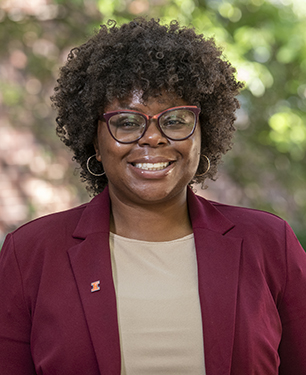Nov 9, 2023
Closing the Gap — Why Feedback Is Essential for Improving AC Disclosures
At the start of 2001, all seemed well at Enron, a vast American energy company with more than 20,000 employees and $100+ billion in revenues. But by fall, it was a very different story. A series of accounting scandals rocked the company, erasing $11 billion in shareholder value and sending the company into bankruptcy.
And it wasn’t alone.

Similar scandals at WorldCom and other large companies eventually led to the Sarbanes-Oxley Act and other legislation, which sought to curb the accounting abuses that led to the disaster and restore investor confidence. With Sarbanes-Oxley, audit committees' oversight duties and some aspects of audit committee disclosures became more stringent. Since the passing of the Sarbanes-Oxley Act, however, their responsibilities have expanded to include more evolving duties, like overseeing firms' cyber security and ESG functions. So how have audit committee disclosures changed, and is there room for improvement so that investors can be more informed about audit committee activities? These were among the questions Gies assistant professor Karneisha Wolfe tackles in “Audit Committee Disclosure Evolution: Evidence From the Field.”
The study, which Wolfe coauthored with three researchers from Virginia Tech and the University of Tennessee, found that most auditing committees pursued one of two routes in their reporting, either providing boilerplate AC disclosures that met the minimum regulated requirements or using the standardized language recommended by practitioners like the Center for Audit Quality and large accounting firms. Among the 29 companies they interviewed, however, there were two who chose a different path, actively seeking feedback from investors.
In those two firms, Wolfe and her coauthors saw the most significant improvements in AC disclosure, with one providing a detailed discussion about time-varying, company-specific risks that the committee focused on each year, and how it responded to those risks. But those firms were the outliers.
In most companies, the audit committees didn’t seek input or go into great detail in their reporting, sticking with bullet-point statements that are high on efficiency, but low on details. And that can be problem for stockholders looking for useful information.
“The audit members assume that investors are OK with what they’re currently disclosing, and they’re not,” said Wolfe. “But unless they voice that displeasure and directly let the audit committee members know that they’re unhappy, there’s not going to be any change.”
Until those communication issues are resolved, however, Wolfe says there are several key things that audit committees can do to improve the usefulness of their reports. These include discussing how their skillsets and qualifications meet the needs of the firm, delineating the responsibilities they’re taking on, and going beyond boilerplate details to “tell the story” of AC oversight culture.
As for Wolfe, her story starts a few hundred miles east of Gies in South Carolina. She spent most of her early years in the Palmetto State before moving north to complete a master’s in accounting at Wake Forest University in North Carolina and a PhD in accounting at Virginia Tech. In between she worked at Ernst & Young and a fortune 500 company, gaining valuable experience, she hopes to bring to the classroom.
Wolfe, who will be teaching Intermediate Financial Accounting at Gies, said there were a number of things that attracted her to the College, starting with a student population that has a reputation for being engaged in the classroom. As someone with a passion for teaching, that was important to her.
She also thought it was the perfect place to pursue her research interests, which run from audit judgement and decision-making, to financial reporting and corporate governance. “The research capability within Gies, you just can’t beat,” said Wolfe. Ultimately, however, it wasn’t the deciding factor.
“For me, it was the people,” said Wolfe.
During job search, she had met with other faculty at different schools. And they each scored checks in the plus column. But at Gies, everything just clicked.
“I could be myself. And if I can be myself, I can give you the true me,” said Wolfe. “That was the most important thing to me.”
That authenticity resonates with former students, who occasionally drop her a line to let her know how their lives are going. When they land a job or share how some small piece of advice made a difference in their trajectory, it confirms her decision to teach.
“You can really make an impact on someone’s life,” said Wolfe. “And that’s awesome.”
